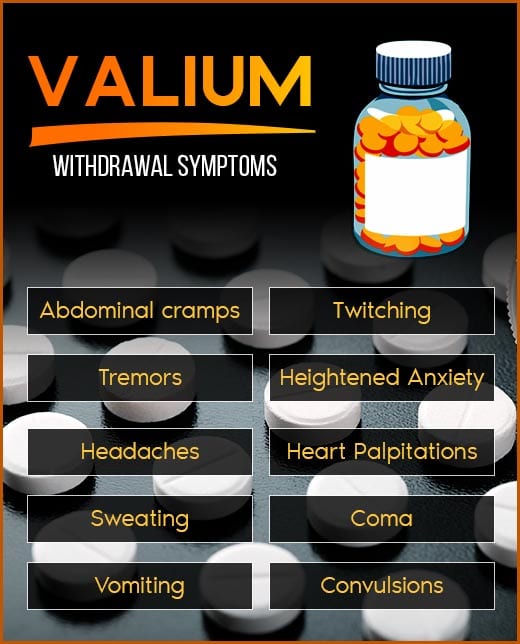If you have uncontrollable anxiety or are trying to fight alcohol withdraw symptoms as part of your rehab treatment then your doctor may prescribe Valium to you. Like any prescription, there are many things that you need to know before you take it.
You need to sit down and have a serious talk with your doctor about the drug but if you’ve never taken it or you’re unfamiliar with it then you may not know what questions to ask. While the doctor will sort of guide you along the in the process it’s better if you do a little research beforehand.
To this end, here is a guide on everything you’ll need to know about Valium including the side effects and how to avoid addiction.
1. What is Valium
Valium is the off-brand version of the drug Diazepam and falls into the class of drugs called benzodiazepines. Typically these drugs treat things like seizures, anxiety, and muscle spasms. Some medical facilities will give you the drug to calm you down before you go in for surgery or another medical procedure.
How to Use it
You will be given basic instructions on how to use it by your pharmacist but the basic idea is that you’ll be taking it either in liquid or pill form with or without food depending on what the doctor says.
If you are taking the liquid version make sure you carefully measure it out. It’s very easy to accidentally take too much. To this end, make sure you take your dosage with a tiny measuring cup. The dosage you’re given will all depend on how old you are and the severity of your condition so it varies from person to person.
What to Know Before Taking it
Before taking the drug, make sure you sit down with your doctor to fully discuss it. This is because certain existing conditions counteract with Valium in disastrous ways. This includes things like muscle weakness or sleep apnea.
If you have depression on top of having anxiety then Valium may make these symptoms worse.
2. Valium Side Effects
When taking Valium there are a few side effects that you may experience. The main ones that you’ll run into are muscle weakness, drowsiness, and a loss of coordination.
Some of the more serious ones are anxiety attacks, shallow breathing, severe depression, passing out, aggression, worse seizures, and hallucinations. If you experience any one of these then you need to get into contact with your doctor right away.
3. Valium High

Further risk arises when people take it with alcohol or cannabis in an attempt to lengthen or heighten the effects of the drug for a larger high feeling.
4. How Long Does Valium Last
Valium is a drug that should be taken very short term. Unless instructed by your doctor, you shouldn’t take it past four months. As far as how long it stays in your system, it will stick around for around 9 days.
How long it stays really depends on your body weight, age, and kidney health. Keep in mind that some of the sedative effects will last longer in adults so make sure to avoid operating machinery. The typical dosage of Valium is 2-4 times a day.
5. Valium and Alcohol
Valium can be used to combat alcohol addiction symptoms however it should never be taken with alcohol. Alcohol increases the effects of valium on the body. Again, many make the mistake of taking it for this reason so they can get a larger high.
The biggest problem of doing this on top of causing addiction to occur is that alcohol also increases some of Valium’s worst side effects.
6. Valium Addiction
Most benzodiazepines are habit forming and easy to abuse on accident. Again, It can cause a euphoric feeling, especially when taken with other drugs. Valium addiction doesn’t come without its nasty withdrawal symptoms such as
- Abdominal cramps
- Tremors
- Headache
- Sweating
- Vomiting
- Twitching
- Heightened anxiety
- Heart Palpitations
- Coma
- Convulsions
- Death
The Withdrawl symptoms for Valium last a lot longer than that of other benzodiazepines, extending up to 6 weeks after you stop taking the drug.
Rebound Anxiety
When addiction occurs and you’re coming off the drug you may experience a rebound in anxiety that is worse than what you were taking the medication for. On top of heightened anxiety, you may also experience horrible mood swings and restlessness.
These effects can increase if you just drop the drug and go into rehab cold turkey. It’s better to just gradually decrease your dose until you’re able to stop taking it completely.
Everything You Need to Know About Valium
If you have anxiety or you’re just really nervous about going in for a medical procedure, your doctor may prescribe Valium to you. While it can help temporarily you don’t want to use it longer than 4 months or you’ll risk becoming addicted. Use this helpful guide to make sure you know what you’re getting yourself into before you start taking the drug.
Call us toll-free at (844) 467-3848 if you have any questions about Valium or if you need help. Your call will be kept confidential and we’re available to talk 24 hours a day, 7 days a week.Most PPO Health
